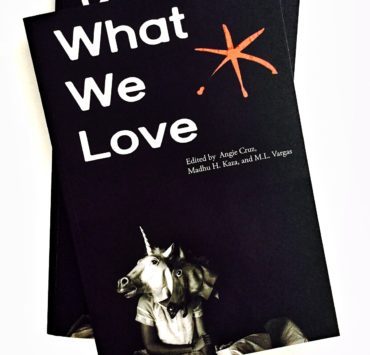
Jennifer Clement, President of PEN International and Zoe Rodriguez (lawyer, and Cultural Fund and Writer Relations Manager at Copyright Agency Australia) presented the Copyright Manifesto at the PEN Congress in Ourense in September 2016 where it passed unanimously.
AC: Why is the manifesto important at this point in time?
JC: The threat to copyright is growing due to new technologies and the laws being passed to support these new technologies, PEN needed to take a momentous stand. Writers, publishers and lawmakers look to PEN – the world’s largest and oldest writers’ organization – for a firm stand in defence of copyright.
AC. How are writers at risk regarding copyright?
ZR: The digital environment throws up so many possibilities and at the same time so many concerns for writers. Digital technology – the internet and email – enables content to be sent across the world to potentially limitless recipients almost instantaneously, with the files sent indistinguishable from originals. And that’s great if creators can obtain fair payment for these uses. The problem is where this activity happens without their permission and without payment.
Copyright is the framework that regulates the flow of content – it is the way that writers can take their creative works to market and earn a living. In the policy area over the last decade there have been some very vocal proponents of diminishing copyright protection of creators in the digital world, especially from consumer groups who argue that copyright is a hindrance to access. The reality is that copyright is vital to the development of new, diverse, vibrant content. If creators are not able to obtain fair reward for the time, talent and skill they spend in making works, they are deterred from creating new works.
Often unremunerated provision of content digitally is being undertaken by third parties who’ve had nothing to do with the creation of the content, unwilling to pay the creators for the uses they make of works, but very willing to make their own profit out of it – through advertising revenue or as part of an inducement to another service. And this activity that would be called theft in relation to any other property is defended by the entities doing it as a public service of sharing access to content.
These are the concerns of writers in the early 21st century as our economies transition to the digital environment. For writers to survive and to thrive to tell the stories of our nations, they must have appropriate copyright rights, and they and others in the publishing industry must in turn provide content in convenient, efficient ways at fair prices to readers around the world.
AC: This is a historic and important move for PEN International. What’s next on your list for your time as president?
JC: A change to the PEN Charter. Today, after almost one hundred years, I believe our Charter would be stronger if it included gender, sexual orientation, and sexual identity. This reflects the work PEN is already doing, for example through PEN/Outwrite, or the amazing work of many of our centres driving forward gender equality and combatting prejudice. PEN cannot stand silent as women are censored through violence, as freedom of religion and belief are attacked and while writing about the person you are and the person you love can place you in jail or get you killed. This is something we’ve all fought for throughout our history, and I hope to see these changes embodied by our Charter. It is time – past time – to amend our charter to be more inclusive and to reflect our work and belief that every story must have the freedom to be told.
RESOLUTION ON THE PEN INTERNATIONAL COPYRIGHT MANIFESTO.
The Assembly of Delegates of PEN International, meeting at its 82nd World Congress in Ourense, Galicia, Spain 26 September – 2 October 2016
The ability in the digital era to make unauthorised reproductions on a mass scale often indiscernible from the original and to distribute them potentially infinite times to infinite recipients at negligible cost poses serious threats for writers. It undermines their ability to obtain payment for the use of their works.
Philip Pullman, renowned English writer and President of the British Society of Authors, expresses this view clearly, ‘The technical brilliance is so dazzling that people can’t see the moral squalor of what they’re doing.’ His conclusion is a rational defence of authors’ right to expect fair payment for their work, as enabled by international copyright laws: ‘The principle is simple, and unaltered by technology, science or magic: if we want to enjoy the work that someone does, we should pay for it.’
Last year, at PEN’s 81st Congress in Quebec, the Assembly of Delegates voted unanimously to adopt the PEN International Principles on Authors’ Moral Rights and Copyright. However, as the threat to copyright grows due to new technologies and the laws being passed to support them, writers, publishers and lawmakers look to PEN, the world’s largest and oldest writers’ organization, for an even firmer stand in defence of copyright. This resolution places nine of the points adopted in 2015 in a manifesto framework entitled the PEN International Copyright Manifesto[1] . The PEN International Copyright Manifesto as drawn up below is intended to be used as a document for examining legislation practices the world over as well as being an instrument of advocacy for respecting the rights of writers.
THE PEN INTERNATIONAL COPYRIGHT[2] MANIFESTO
Going back to Britain’s Statute of Anne (the first copyright act) of 1709, humankind has recognized the need to enact laws to safeguard intellectual property. In 1886 the Berne Convention for the Protection of Literary and Artistic Works was accepted, having been championed by Victor Hugo. It was then, and is now, an enlightened idea to acknowledge how individual creation and discovery elevates our collective humanity.
An author’s economic independence and autonomy is central to freedom of expression and encourages a diversity of voices, which in turn fosters democracy.
To deny authors the ability to earn monetary reward from their creative works is to deny the works value and their authors a livelihood. Using the intellectual property of an author without fair recompense, and in the absence of a legitimate legal exception to the author’s copyright, is theft.
PEN International believes that today, more than ever before, the rights of the individual creator are in peril from new technologies, policies and laws. PEN upholds copyright protection for all writers in every part of the world and declares the following:
- The author is the owner of moral and copyright interests in any works they create until such time as that copyright expires.
- Copyright includes the following uses of works: reproduction (whether analogue or digital), adaptation (including translation), publication, performance, and digital use which includes transmission of works across all digital paths and on all digital platforms
- Moral rights include: the right of the author to be attributed as the author of the work, and not to be falsely attributed as the author of a work they have not authored, and the right to ensure that their work are not subjected to derogatory treatment prejudicial to their reputations as authors.
- Authors should have the right to trade freely in the copyright in their works.
- It is a matter of choice for authors of works whether and what fee they charge for use of their works.
- PEN International acknowledges that there are instances where governments may find it to be in the public interest to legislate exceptions to the exclusive rights of authors in the works they create. Any such exceptions must not unfairly prejudice the legitimate moral and economic interests of the author.
For instance:
- Where works are not commercially available in formats accessible to the print disabled, exceptions in domestic laws should allow for a reproduction to be made for or by a person with a print disability into an accessible format without a copyright infringement occurring. Any such copies made for the print disabled should only be made after a search for a commercial copy has been undertaken.
- Court determinations, legislation, regulations, and other statutory instruments must be available to citizens. Faithful, unamended reproduction of these works should not be an infringement of copyright.
- Authors’ legitimate economic interests in the works they create include all existing and potential markets for their works.
- Digital Rights Management systems applied to works should be supported by copyright legislation where necessary in order for copyright owners to exercise their copyright in works.
- Digital reproductions of a work made on a significant scale, where no exception is in place and without the permission of the author of a work, constitute piracy. National legislation should contain appropriate punitive measures to deter piracy, while ensuring that legitimate access to works is not impeded.
[1] Principle 7 was removed as it has to do with censorship rather than copyright.
[2] The word copyright itself is used here in the context of the Berne Convention of 1886 and is the legal term, which may be scrutinized from a philosophical point of view.
Image Credits: http://nyphotographic.com/

Angie Cruz's novel, DOMINICANA is the inaugural bookpick for GMA book club, and the Wordup Uptown Reads selection for 2019. It was also longlisted for the Andrew Carnegie award in excellence in fiction for 2019. It was named most anticipated/ best book in 2019 by Time, Newsweek, People, Oprah Magazine, The Washington Post, The New York Times, and Esquire. Cruz is the author of two other novels, Soledad and Let It Rain Coffee. She's the founder and Editor-in-chief of the award winning literary journal, Aster(ix)and an Associate professor at University of Pittsburgh where she teaches in the MFA program. She splits her time between Pittsburgh, New York, and Turin.







